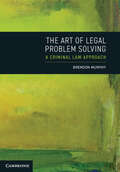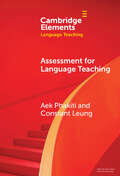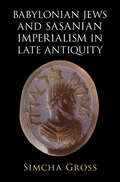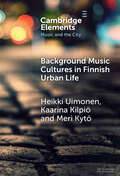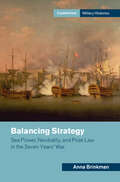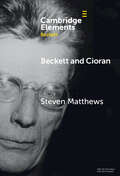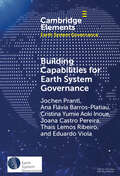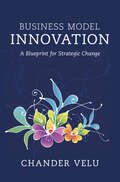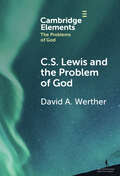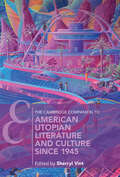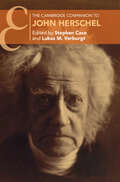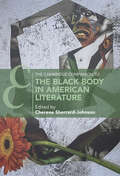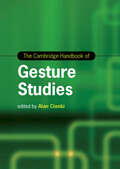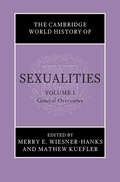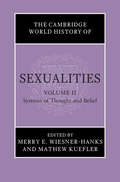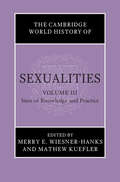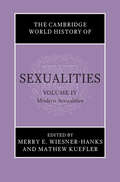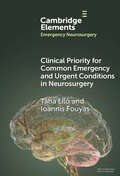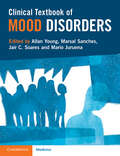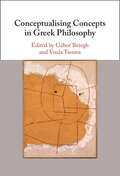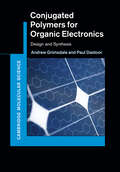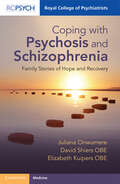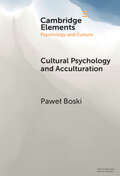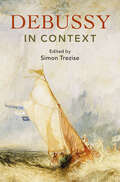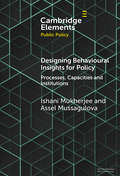- Table View
- List View
The Art of Legal Problem Solving: A Criminal Law Approach
by null Brendon MurphyThe Art of Legal Problem Solving: A Criminal Law Approach is a sophisticated skills book designed to help students develop the problem-solving techniques necessary for their legal careers. This succinct yet comprehensive book provides the perfect mix of general instruction and specific examples to encourage students to think about problems both in depth and broadly. It follows a clear roadmap presented in a logical progression, beginning with the fundamentals, fact finding and statutory interpretation before turning to the advanced areas of analysing and writing answers to problem questions. While written primarily for criminal law students, the skills imparted are generic and can be applied equally in any area of the law and in any jurisdiction. The Art of Legal Problem Solving is an indispensable work for law students who want to not only improve their problem-solving skills but master them.
Assessment for Language Teaching (Elements in Language Teaching)
by null Aek Phakiti null Constant LeungThis Element reviews the key foundational concepts, beliefs, and practices underpinning approaches to assessment in English Language Teaching. Exploring major concepts and practices through educational, social, and ethical perspectives, it offers theoretically informed and close-to-practice descriptions and up-to-date explanations of the affordances and limitations of different assessment approaches related to language teaching. This Element presents a cohesive and pragmatic framework that allows teachers to efficiently implement tests and assessments in their contexts.
Babylonian Jews and Sasanian Imperialism in Late Antiquity
by null Simcha GrossFrom the image offered by the Babylonian Talmud, Jewish elites were deeply embedded within the Sasanian Empire (224-651 CE). The Talmud is replete with stories and discussions that feature Sasanian kings, Zoroastrian magi, fire temples, imperial administrators, Sasanian laws, Persian customs, and more quotidian details of Jewish life. Yet, in the scholarly literature on the Babylonian Talmud and the Jews of Babylonia , the Sasanian Empire has served as a backdrop to a decidedly parochial Jewish story, having little if any direct impact on Babylonian Jewish life and especially the rabbis. Babylonian Jews and Sasanian Imperialism in Late Antiquity advances a radically different understanding of Babylonian Jewish history and Sasanian rule. Building upon recent scholarship, Simcha Gross portrays a more immanent model of Sasanian rule, within and against which Jews invariably positioned and defined themselves. Babylonian Jews realized their traditions, teachings, and social position within the political, social, religious, and cultural conditions generated by Sasanian rule.
Background Music Cultures in Finnish Urban Life (Elements in Music and the City)
by null Heikki Uimonen null Kaarina Kilpiö null Meri KytöThis Element focuses on how music is experienced, articulated, and reclaimed in urban commercial environments. Special attention is paid to listeners, spaces, and music, co- and re-produced continuously in their triangular relationship affected by social, legal, economic, and technological factors. The study of the historical development of background music industries, construction of contemporary sonic environments, and individual meaning-making is based on extensive data gathered through interviews, surveys, and fieldwork, and supported by archival research. Due to the Finnish context and the ethnomusicological approach, this study is culture-sensitive, providing a fresh 'factory-to-consumer' perspective on a phenomenon generally understood as industry-lead, behavioral, and global. This title is also available as Open Access on Cambridge Core.
Balancing Strategy: Sea Power, Neutrality, and Prize Law in the Seven Years' War (Cambridge Military Histories)
by null Anna BrinkmanWhat is the relationship between seapower, law, and strategy? Anna Brinkman uses in-depth analysis of cases brought before the Court of Prize Appeal during the Seven Years' War to explore how Britain worked to shape maritime international law to its strategic advantage. Within the court, government officials and naval and legal minds came together to shape legal decisions from the perspectives of both legal philosophy and maritime strategic aims. As a result, neutrality and the negotiation of rights became critical to maritime warfare. Balancing Strategy unpicks a complex web of competing priorities: deals struck with the Dutch Republic and Spain; imperial rivalry; mercantilism; colonial trade; and the relationships between metropoles and colonies, trade, and the navy. Ultimately, influencing and shaping international law of the sea allows a nation to create the norms and rules that constrain or enable the use of seapower during war.
Beckett and Cioran (Elements in Beckett Studies)
by null Steven MatthewsThis Element discusses the association between Samuel Beckett, and the Romanian-born philosopher, E. M. Cioran. It draws upon the known biographical detail, but, more substantially, upon the terms of Beckett's engagement with Cioran's writings, from the 1950s to the 1970s. Certain of Cioran's key conceptualisations, such as that of the 'meteque', and his version of philosophical scepticism, resonate with aspects of Beckett's writing as it evolved beyond the 'siege in the room'. More particularly, aspects of Cioran's conclusion about the formal nature that philosophy must assume chime with some of the formal decisions taken by Beckett in the mid-late prose. Through close reading of some of Beckett's key works such as Texts for Nothing and How It Is, and through consideration of Beckett's choices when translating between English and French, the issues of identity and understanding shared by these two settlers in Paris are mutually illuminated.
Building Capabilities for Earth System Governance (Elements in Earth System Governance)
by null Jochen Prantl null Ana Flávia Barros-Platiau null Cristina Yumie Inoue null Joana Castro Pereira null Thais Lemos Ribeiro null Eduardo ViolaThis Element develops a new Strategic Capabilities Framework for studying and steering complex socio-ecological systems. It is driven by the central question of what are the most essential capabilities that ought to be fostered for addressing the fundamental 21st Century environmental challenges and Earth system transformations. The author's objective is to innovate transformative ideas toward better climate and ocean governance that are of interest both to academics and policymakers in the field. Rather than investigating the design and effectiveness of institutions in governing the climate and the oceans, the authors offer an alternative approach starting from the assumption that global governance arrangements must be informed by the capabilities of the communities affected. This Element aims to offer out-of-the-box thinking about capabilities-focused and community-centered frameworks that align multi-level systems of governance with the fundamental challenges of global environmental change. This title is also available as Open Access on Cambridge Core.
Business Model Innovation: A Blueprint for Strategic Change
by null Chander VeluWhat strategic challenges are faced by both start-ups and incumbent firms, and what opportunities do these challenges create for business model innovation? Focusing on the underpinning theory and concepts of business models, this book identifies new business models capable of creating sustainable competitive advantage, and guides readers through their implementation. A detailed introduction outlines current research in business model innovation (including directions for future research) and global business cases are applied throughout to illustrate key issues. Topics covered include market creation, leadership, digital technology adoption, small- and medium-sized enterprises, start-ups, sustainability, socio-economic development and conduct risk. Also discussed are the principles of the architecting economic systems, the role of government in influencing business models design, and how organisational 45structures must adapt in the context of business model innovation.
C.S. Lewis and the Problem of God (Elements in the Problems of God)
by null David WertherUnderstanding C.S. Lewis's vocation is essential for reading his works well, as is knowing how he came to it: his long and winding philosophical journey and reoccurring experiences of 'Joy.' Lewis discounted 'proofs' in philosophical theology but offered key arguments in support of theism per se, and Christianity in particular. His account of “mere Christianity” shows the centrality of self-determination, an emphasis on Christ's human nature, and a relativizing of atonement theories. Finally, Lewis's understanding of faith, his attempts to make sense of petitionary and imprecatory prayers, and his emphasis on theosis/deification, are considered.
The Cambridge Companion to American Utopian Literature and Culture since 1945 (Cambridge Companions to Literature)
by Sherryl VintProviding a comprehensive overview of American thought in the period following World War II, after which the US became a global military and economic leader, this book explores the origins of American utopianism and provides a trenchant critique from the point of view of those left out of the hegemonic ideal. Centring the voices of those oppressed by or omitted from the consumerist American Dream, this book celebrates alternative ways of thinking about how to create a better world through daily practices of generosity, justice, and care. The chapters collected here emphasize utopianism as a practice of social transformation, not as a literary genre depicting a putatively perfect society, and urgently make the case for why we need utopian thought today. With chapters on climate change, economic justice, technology, and more, alongside chapters exploring utopian traditions outside Western frameworks, this book opens a new discussion in utopian thought and theory.
The Cambridge Companion to John Herschel (Cambridge Companions to History)
by Stephen Case Lukas M. VerburgtIt has been said that being scientific in Victorian England meant to be as much like John Herschel as possible. This volume shows readers what it meant to be John Herschel (1792-1871), one of England's most prominent polymaths. Drawing on his published oeuvre and recent scholarship, as well as an immense amount of surviving archival material and correspondence, these essays present the first ever comprehensive account of Herschel's life, work, and legacy. From mathematics and astronomy, to philosophy and politics, the volume sheds new light on his crucial role in the history of Victorian science and explores a wide array of issues in the history of nineteenth-century culture, philosophy, mathematics, and beyond.
The Cambridge Companion to the Black Body in American Literature (Cambridge Companions to Literature)
by Cherene Sherrard-JohnsonWhether invisible or hyper-visible, adored or reviled, from the inception of American literature the Black body has been rendered in myriad forms. This volume tracks and uncovers the Black body as a persistent presence and absence in American literature. It provides an invaluable guide for teachers and students interested in literary and artistic representations of Blackness and embodiment. The book is divided into three sections that highlight Black embodiment through conceptual flashpoints that emphasize various aspects of human body in its visual and textual manifestations. This Companion engages past and continuing debates about the nature of embodiment by showcasing how writers from multiple eras and communities defined and challenged the limits of what constitutes a body in relation to human and nonhuman environment.
The Cambridge Handbook of Gesture Studies (Cambridge Handbooks in Language and Linguistics)
by Alan CienkiThe study of gesture-the movements people make with their hands when talking-has grown into a well-established field and research is still being pushed into exciting new directions. Bringing together a team of leading scholars, this Handbook provides a comprehensive overview of gesture studies, combining historical overviews as well as current, concise snapshots of state-of-the-art, multidisciplinary research. Organised into five thematic parts, it considers the roles of both psychological and interactional processes in gesture use, and considers the status of gesture in relation to language. Attention is given to different theoretical and methodological frameworks for studying gesture, including semiotic, linguistic, cognitive, developmental, and phenomenological theories and observational, experimental, corpus linguistic, ethnographic, and computational methods. It also contains practical guidelines for gesture analysis along with surveys of empirical research. Wide ranging yet accessible, it is essential reading for academic researchers and students in linguistics and cognitive sciences.
The Cambridge World History of Sexualities: Volume 1, General Overviews (The Cambridge World History of Sexualities)
by Wiesner-Hanks, Merry E. Mathew KueflerVolume I offers historiographical surveys and general overviews of central topics in the history of world sexualities. Split across twenty-two chapters, this volume places the history of sexuality in dialogue with anthropology, women's history, LGBTQ+ history, queer theory, and public history, as well as examining the impact Freud and Foucault have had on the history of sexuality. The volume continues by providing overviews on the sexual body, family and marriage, the intersections of sexuality with race and class, male and female homoerotic relations, trans and gender variant sexuality, the sale of sex, sexual violence, sexual science, sexuality and emotion, erotic art and literature, and the material culture of sexuality.
The Cambridge World History of Sexualities: Volume 2, Systems of Thought and Belief (The Cambridge World History of Sexualities)
by Wiesner-Hanks, Merry E. Mathew KueflerVolume II focuses on systems of thought and belief in the history of world sexualities, ranging from early humans to contemporary approaches. Comprising eighteen chapters, this volume opens with a chapter on the evolutionary legacy and then delves into the sexualities of ancient Egypt, the Near East, Greece, and Rome, continuing with pre-modern South Asia, China, and Japan, Africa, the Americas, and Oceania. Chapters include an examination of sexuality in the religious traditions of Buddhism, Judaism, Christianity, and Islam, and also look at more recent approaches, including scientific sex, sexuality in socialism and Marxism, and the intersections between sexuality, feminism, and post-colonialism.
The Cambridge World History of Sexualities: Volume 3, Sites of Knowledge and Practice (The Cambridge World History of Sexualities)
by Wiesner-Hanks, Merry E. Mathew KueflerVolume III provides in-depth analyses of specific times and places in the history of world sexualities, to investigate more closely the lived experience of individuals and groups to reveal the diversity of human sexualities. Comprising twenty-five chapters, this volume covers ancient Athens, Rome, and Constantinople; eighth- and ninth-century Chang'an, ninth- and tenth-century Baghdad, and tenth- through twelfth-century Kyoto; fourteenth- and fifteenth-century Iceland and Florence; sixteenth-century Tenochtitlan, Istanbul, and Geneva; eighteenth-century Edo, Paris, and Philadelphia; nineteenth-century Cairo, London, and Manila; late nineteenth- and early twentieth-century Lagos, Bombay, Buenos Aires, and Berlin, and twentieth-century Sydney, Toronto, Shanghai, and Rio de Janeiro. Broad in range, this volume sheds light on continuities and changes in world sexualities across time and space.
The Cambridge World History of Sexualities: Volume 4, Modern Sexualities (The Cambridge World History of Sexualities)
by Wiesner-Hanks, Merry E. Mathew KueflerVolume IV examines the intersections of modernity and human sexuality through the forces, ideas, and events that have shaped the modern world. Through eighteen chapters, this volume examines connections between sexuality and the defining forces of modern global history including capitalism, colonialism, migration, consumerism, and war; sexuality in modern literature and print media; sexuality in dictatorships and democracies; and cultural changes such as sex education and the sexual revolution. The volume ends with discussions of the difficult issues we in the modern world continue to face, such as restrictions on reproductive rights, sex tourism, STDs and AIDS, sex trafficking, domestic violence, and illiberal attacks on sexuality.
Clinical Priority for Common Emergency and Urgent Conditions in Neurosurgery (Elements in Emergency Neurosurgery)
by null Taha Lilo null Ioannis FouyasEmergency Neurosurgery is a constantly evolving specialty, resulting in ever increasing challenges posed on the higher specialty trainee. The focus of this Element is to guide the reader on the application of robust and easily applicable management strategies whilst dealing with the most challenging aspects of their professional workload. The authors have categorised the various subgroups of emergency neurosurgical workload, devised a comprehensive management algorithm, included case scenaria related to the most challenging emergency situations and highlighted easily overlooked clinical information. In summary, this Element will provide robust and easily applicable management strategies whilst dealing with the most challenging aspects of the emergency neurosurgical workload.
Clinical Textbook of Mood Disorders
by Jair C. Soares Allan Young Marsal Sanches Mario JuruenaMood disorders affect around 1 in 5 people, but the diagnosis and management of these conditions can be challenging. This practical handbook presents a comprehensive overview of these disorders, as well as detailed guidelines for their treatment. The handbook takes a transdisciplinary approach to mood disorders, focusing not only on the biological aspects but also on psychosocial features of importance for optimal diagnosis and management. Content covers nosological considerations, historical aspects, peculiarities along the lifespan, and the associations between mood disorders and other conditions, with a focus on their implications for the optimal management of patients. Practical and evidence-based information is discussed on the role of guidelines related to treatment in selected population groups, including youth, the elderly, and women. With a practical, reader-friendly approach, this book will be invaluable for mental health professionals involved in the treatment of patients with mood disorders, including trainees from different mental health areas.
Conceptualising Concepts in Greek Philosophy
by Gábor Betegh Voula TsounaConcepts are basic features of rationality. Debates surrounding them have been central to the study of philosophy in the medieval and modern periods, as well as in the analytical and Continental traditions. This book studies ancient Greek approaches to the various notions of concept, exploring the early history of conceptual theory and its associated philosophical debates from the end of the archaic age to the end of antiquity. When and how did the notion of concept emerge and evolve, what questions were raised by ancient philosophers in the Greco-Roman tradition about concepts, and what were the theoretical presuppositions that made the emergence of a notion of concept possible? The volume furthers our own contemporary understanding of the nature of concepts, concept formation, and concept use. This title is part of the Flip it Open Programme and may also be available Open Access. Check our website Cambridge Core for details.
Conjugated Polymers for Organic Electronics: Design and Synthesis (Cambridge Molecular Science)
by null Andrew Grimsdale null Paul DastoorFocusing on how conjugated polymers can be designed and made for use in efficient organic electronic devices, this book covers the tools for future development of more environmentally and economically friendly devices. Including examples of interdisciplinary science, it exemplifies how chemists and physicists work together to enable the design and synthesis of high-performance material in devices, allowing polymer-based electronic devices to become viable commercial products. It provides the main classes of conjugated polymers and their applications in organic electronic devices such as transistors, light-emitting diodes, and solar cells, making this a comprehensive introduction. This complete guide includes the methods for making conjugated polymers, the properties and specific structures that make them suitable for use, and how their synthesis can be optimised to improve device performance. Written by experts in the field, this is the ideal guide for researchers and practitioners across materials science, physics, chemistry, and electrical engineering.
Coping with Psychosis and Schizophrenia: Family Stories of Hope and Recovery
by null Juliana Onwumere null David Shiers OBE null Elizabeth Kuipers OBESupporting a relative living with a psychotic disorder can be uniquely challenging when compared to other health conditions, leaving many family carers isolated and struggling with questions: Why us? How do others cope? Is it my fault? How much more can I take? This collection of personal accounts provides family carers with a helpful framework to make sense of their individual experiences and support their own coping and wellbeing. It details the myriad of positives, challenges and life-changing experiences that families encounter following the development of a psychotic illness in a loved one. The authors of these accounts are varied and include the parents, partners, siblings and children of those experiencing psychosis. This book will also serve as an excellent resource for psychiatrists, psychiatric nurses, psychologists, social workers, GPs and students who should find the book relevant both for their own practice and for those families they support.
Cultural Psychology and Acculturation (Elements in Psychology and Culture)
by null Pawel BoskiThis Element offers a new theoretical model of acculturation within the general framework of cultural psychology. It is divided into four sections. First, cross-cultural and cultural orientations are contrasted. The psychology of economic migration (EARN), separate from the psychology of acculturation (LEARN), is the theme of the next section. Berry's model of acculturation preferences is discussed in section three. It serves as a contrasting reference point for the tripartite model of bicultural competencies, developed in the final section. The three interconnected components are symbols, language, and values/practices characterize both enculturation and acculturation. As a second culture learning process, acculturation is not restricted to immigration. It may take a vicarious (remote) shape in the home country. Reaching bicultural competencies and identities, in the long run, is the proposed outcome of acculturation.
Debussy in Context (Composers in Context)
by Simon TreziseExploring the many dimensions of Debussy's historical significance, this volume provides new perspectives on the life and work of a much-loved composer and considers how social and political contexts shape the way we approach and perform his works today. In short, focused chapters building on recent research, contributors chart the influences, relationships and performances that shaped Debussy's creativity, and the ways he negotiated the complex social and professional networks of music, literature, art, and performance (on and off the stage) in Belle Époque Paris. It probes Debussy's relationship with some of the most influential '-isms' of his time, including his fascination with early music and with the 'exotic', and assesses his status as a pioneer of musical modernism and his continuing popularity with performers and listeners alike.
Designing Behavioural Insights for Policy: Processes, Capacities & Institutions (Elements in Public Policy)
by null Ishani Mukherjee null Assel MussagulovaThe diversity of knowledge surrounding behavioural insights (BI) means in the policy sciences, although visible, remains under-theorized with scant comparative and generalizable explorations of the procedural prerequisites for their effective design, both as stand-alone tools and as part of dedicated policy 'toolkits'. While comparative analyses of the content of BI tools has proliferated, the knowledge gap about the procedural needs of BI policy design is growing recognizably, as the range of BI responses grows in practice necessitating specific capabilities, processes and institutional frameworks to be in place for their design. This Element draws on the literature on policy design and innovation adoption to explore the administrative, institutional and capacity endowments of governments for the successful and appropriate integration of BI in existing policy frameworks. Further, we present three illustrative cases with respect to their experience of essential procedural endowments facilitating for the effective integration of BI in policy design.
